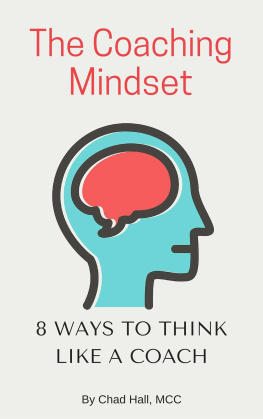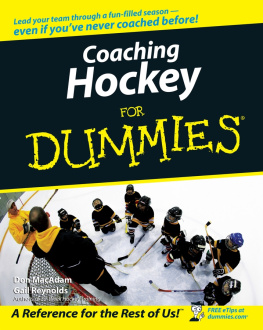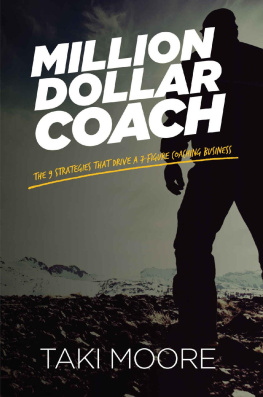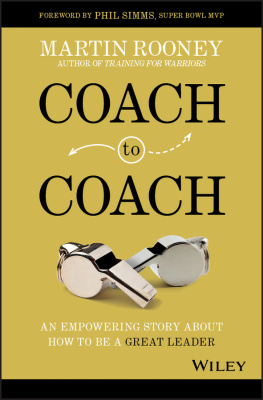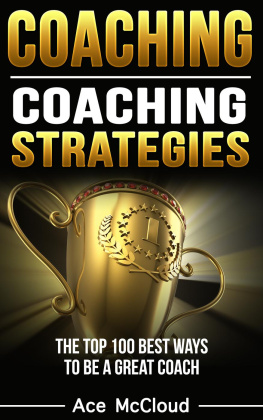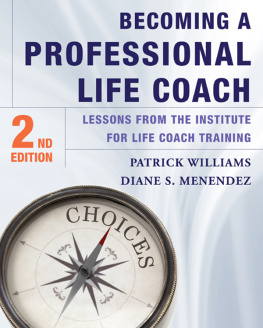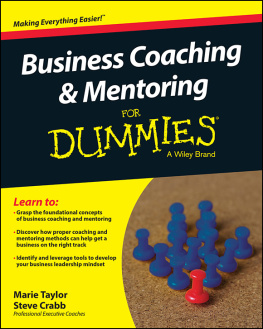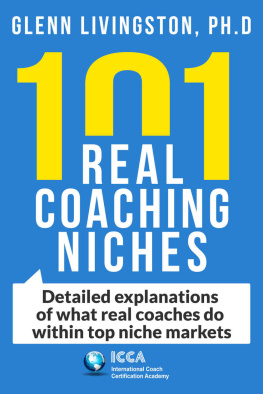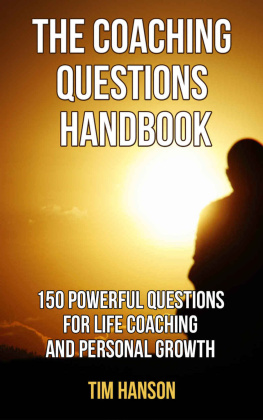What Good Coaches Get Wrong
Coaching is afast-growing profession as well as a proven way to boost your ability to lead,manage, and even parent. More people are turning to coaches becausecoaching works. Or at least it works in proportion to the coachs abilityand the clients willingness to work hard and grow.
I learned aboutcoaching in 1999 when I became a staff member of a large denomination. Myjob was to help churches and leaders be more effective. The problem wasthat my approach was all wrong: I told people what to do and watched as theydidnt do it. Such is the life of a consultant.
When I stumbledupon coaching, I quickly realized this was a different and far more effectiveway of helping. Rather than tell people what to do, I helped people tellthemselves what to do. Rather than deliver my expertise, I drew forththeir expertise. Rather than stand by and watch as they did nothing withthe plans and goals I gave them, I stood amazed at the progress they madetoward their own goals.
Whether youwant to start a coaching practice, add coaching to your consulting orcounseling practice, or use a coaching approach in your current role, you willadd a tremendous amount of value to those you coach. But the value youadd will only come in proportion to your ability coach. Not all coachesare great coaches. Some are not very effective at all, while others aresimply amazing.
My bet is thatyou want to be a great coach. Thats a wonderful goal, and one thatpretty much anyone whos willing to learn, grow, adapt, and stick with it canachieve.
Ive beencoaching for over fifteen years now and have even been recognized as a MasterCertified Coach by the International Coaching Federation. That makes meone of about 700 MCCs in the world. But I didnt start out as a mastercoach; I started out as a terrible coach. I did a lot of things wrong andI was a bit hardheaded in thinking that whatever I did was right and however Icoached was what real coaching must be.
My journeytoward being a masterful coach took me through a lot of changes and required alot of growth. The most significant aspect of my growth was mytransformation from doing coaching at the skill level to being a coach at thedeeper level of how I think.
As you makeprogress toward your goal of being a coach, let me offer some advice: doingcoaching is one thing (a good thing), but the high leverage shift is not inyour doing its in your thinking. You might even say its in yourbeing.
Too many timesIve seen new (and even seasoned) coaches get in the way, do it wrong, and justmake a mess of the coaching relationship. More times than not they do itwrong because they think wrong. When I give these coaches feedback, they mostoften want to know what to do differently:
whatquestions to ask
howbest to interrupt
whento offer an insight
howto create space for the other person to think
whatto say in response to a client whos stuck
Those are allgood things (when the time is right), but those are techniques. The righttechniques in the wrong hands will produce the wrong results. As a newcoach what you need most is not simply a change of techniques, its to changethe way you think. When you think like a coach, the techniques just click,the conversation flows smoothly, and you bring tremendous value to those youcoach. Thinking like a coach requires not just a change in what you do,but also a change in who you are. When that deep-level change occurs, theproper techniques and skills come naturally and fluidly.
Mytransformation to become a masterful coach hinged on a huge change in mythinking. In this book my hope is to help you experience a similarchange. This short e-book is designed to help you understand the coachingmindset, to notice your mindset, and to actually inhabit a coaching mindset sothat it becomes a part of who you are, not just something you can do. Imgoing to share 7 ways the coachs brain works and help you get your brainworking in that same way. Lets get started.
ONE: Take a Dumb Pill
Since you werein kindergarten youve been rewarded for being smart (or at least foolingteachers into thinking you were smart). An unwritten but pervasive rulein life is that smart is better than dumb, and thats often the case. Butin coaching, being too smart can be really dumb. Let me explain.
When you thinkthe highest value you bring to your coaching client is your intellect, yourbrilliance, your awesome problem-solving abilities, your creativity, or your whatever,you get in the way. Thats because coaching is about bringing out theintellect, brilliance, awesome problem-solving ability and creativity of yourclient. Coaching is a chance for the client to shine, not for you toshine.
This is why Ioften advise new coaches to take a dumb pill. Stop trying to be sosmart. Stop trying to solve the clients challenge. Stop trying tofigure it all out. Stop trying to connect the clients challenge to yourown experience or a book you read or a class you took or an insight yourehaving. But the truth is that its hard to stop those seemingly smartactivities.
A real problemfor us as coaches is that the human brain is an incredible pattern-matchingmachine. When we see something new, we try to connect it to somethingfamiliar, something weve already encountered, something for which we have acategory and maybe even a solution. But our awesome pattern-matching abilityis not to our clients advantage because her brain is also an awesomepattern-matching machine and our job is to get her brain working, not show offhow well ours works.
When we take adumb pill we tell our brain to stop working the way it normally works. Wedo this because the coachs brain needs to work differently than the normalhuman brain. The coachs brain works not to solve, but to facilitate theclients solving. The coachs brain is not trying to think two, three, orfour steps ahead, but to be with the client in the present moment as shethinks.
Okay, sotheres no such thing as a dumb pill. But let the metaphor work foryou. Imagine turning off the pattern-matching, problem-solving part ofyour brain so that you dont impede the client and so you can inhabit otherparts of your brain.
TWO: Go to the Movies
I find that coachingcan be very entertaining. Clients have all sorts of challenges andopportunities and neat stuff going on in their lives and I get a front row seatto their adventure. I find it immensely interesting when a client worksthrough something and gets to the other side. Clients earn a lot ofvictories and being there to see them do it is fun.
Now Im notsuggesting a coach should be voyeuristic a disengaged observer gettingyour own needs met by watching someone else. Instead, I am suggestingthat you treat the coaching conversation like an adventure movie in which theclient is the star, the hero, the main character, and the one moving the actionforward.
Coaches need tothink like this because often clients bring challenging stuff into the coachingconversation and if were not careful we can get hooked and mistakenly thinktheir challenge is an invitation for us to be the star.
Clients cansometimes be in a real pickle. As the coach, you need to think, Oh thisis a tough spot; I cant wait to see how she gets through this! Thatsgood thinking. You do not want to think, Oh this is a tough spot how canI help her get through this? Thats bad thinking. Even worse is totransfer her challenge to you so that it becomes your challenge.
I like to thinkof coaching as an action movie because the action hero always finds a way outof whatever jam he is in. In fact, I think of it as a James Bond, JasonBourne or Mission Impossible movie where I know the lead hero is going to makeit out of whatever predicament hes in because there is going to be anothermovie. When I watch James Bond, I can relax and let him do all the workof fighting the bad guy, escaping his captors or cutting the right wire todeactivate the bomb. I can relax and let him do his job and trust him todo it well. Hes going to get through this and I can watch him doit.

